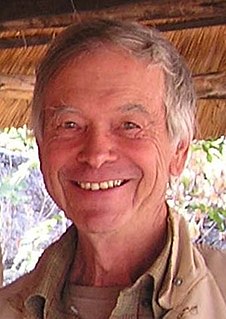A Quote by Paul Greengard
You should only go into science if you really have a yearning to make scientific discoveries.
Quote Topics
Related Quotes
The routine of custom tends to deaden even scientific inquiry; it stands in the way of discovery and of the active scientific worker. For discovery and inquiry are synonymous as an occupation. Science is a pursuit, not a coming into possession of the immutable; new theories as points of view are more prized than discoveries that quantitatively increase the store on hand.
Even mistaken hypotheses and theories are of use in leading to discoveries. This remark is true in all the sciences. The alchemists founded chemistry by pursuing chimerical problems and theories which are false. In physical science, which is more advanced than biology, we might still cite men of science who make great discoveries by relying on false theories.
...It would be possible to make much more progress than has been made if the NCI knew its job better, knew how to make discoveries...The NCI really does not know how to make discoveries....So long as the NCI is not willing to follow up ideas that seem good to people who have had experience making discoveries, the work of the NCI is going to be pedestrian.
I do not believe that a moral philosophy can ever be founded on a scientific basis. … The valuation of life and all its nobler expressions can only come out of the soul’s yearning toward its own destiny. Every attempt to reduce ethics to scientific formulas must fail. Of that I am perfectly convinced.
The truth is that the scientific value of Polar exploration is greatly exaggerated. The thing that takes men on such hazardous trips is really not any thirst for knowledge, but simply a yearning for adventure. ... A Polar explorer always talks grandly of sacrificing his fingers and toes to science. It is an amiable pretention, but there is no need to take it seriously.
When people think science and cooking, they have no idea that it's not correctly expressed. We're actually applying the scientific method. People think chemistry and physics are science, but the scientific method is something else.... It's the science that the world of cooking generates: science of butter; science of the croissant.



































